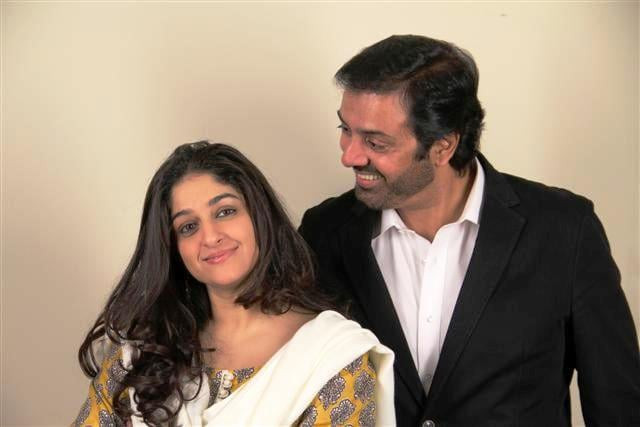[[http://www.youtube.com/watch?v=KO048q-QmRw]]
She was quite eager to watch this new serial, and I decided to keep her company. However, a few minutes into the show I started feeling anger at the writer and producer. Here's why:
"Durr-e-Shahwar" portrayed a working woman who was so focused on her career that she ignored everybody around her - her family, her husband and her in-laws. While the show is well-produced and the actors seemed to be doing a fabulous job depicting their characters, what really annoyed me was that it propagated a popular, regressive mindset - that women exist solely to serve their husbands, provide fresh hot meals to them and chase after them, reminding them to do every little thing.
Particularly annoying was one scene where the woman had the insolence to change the curtains in her own home, with her own money, only to incur her husband's wrath because "now that she had her own money she felt like she could do anything with it."
The show depicts that financial independence and freedom of choice are definite bars to marital happiness. Worse still was the justification that the husband gave for his chauvinistic attitude:
"Our mothers did these things for our fathers and look how happy they are."
Maybe I am taking this one character very seriously when perhaps I shouldn't, because after all, it's just television and it can't really affect me. But the problem is that, in fact, it does.
Television influences mindsets and what it projects affects millions of people across Pakistan - "Humsafar" being a case-in-point. By projecting working women as potentially bad wives, it magnifies the fear that the average Pakistani woman from our mother's generation has.
Acting on these fears, they are unlikely to encourage their daughters in becoming productive members of the society outside of their homes; this fear might even lead them to believe that a career-oriented woman is less likely to garner good "rishtas" (marriage proposal). I myself have seen a few women who hold their daughters back from careers and bribe them with stuff like:
"Shaadi kay baad jo marzi job karni hai karo, shohar ki marzi hai na."
(You can do any job after you get married, it will be up to your husband, right?)
In short, a culture is created where women who work are stigmatised rather than lauded for their contributions and financial independence. Their will power, competence, degrees and intelligence are considered social flaws rather than strengths benefiting society as a whole.
The choice to be a career woman or a home-maker is a personal one; there should be no judgement attached to either and one definitely should not be considered better than the other.
If as a career woman I choose to support my husband as he tries to provide a better future for our children, assist him in taking care of financial responsibilities (while also contributing to the national economy) and at the same time ensure that my home is running smoothly, then how does that make me any less than a traditional home-maker?
I know dozens of dozens of women who work. Instead of focusing exclusively on their careers, they constantly try to juggle all their responsibilities. They work nine to five, look after their husbands, feed their families, pick and drop their children from school, tuitions and play dates and help them with homework. They still manage to maintain close and extended relationships with friends and family regardless of all that they do.
What's more is that they are doing this at the cost of their own time - time that could otherwise be spent doing what other women do - getting a manicure/pedicure, reading a book, hanging out with friends, maybe even getting a haircut, or taking a shower that is longer than seven minutes.
The question to ask here is then why do working women take on this life of hardship, self-sacrifice and perpetual guilt?
It's because we are striving for something better; to send our children to better schools, to provide them with facilities that we did not have access to ourselves, to support not only ourselves but our husbands so that they don't feel that they are solely carrying the burden of the financial future of our family, and yes, also to secure ourselves in case an unfortunate incident leaves us without any kind of support.
I have seen many women who have been either widowed or divorced. Lacking the skills and attitude to support themselves, they are ultimately helpless, at the mercy of their parents and siblings.
Keeping all these things in mind, we choose to become career women and for this we are demonised on national television. We are shown as selfish rather than selfless, and our financial freedom portrayed as a threat. Our ability to think, voice our opinions, and get things done rather than sit around and wait for "our hero on a trusty steed" is taken as a sign of our inability to adjust to marriage and make the compromises that a relationship,whether with husbands or with in-laws, requires.
Since the media plays a critical role in forming opinions and developing attitudes, isn't it time local channels stopped pandering to society's fears about working women and started projecting their achievements in a positive light?
It's time they made serials on the lives and challenges of these brilliant women, instead of creating masala dramas only. I expected the producer of "Durr-e-Shahwar", Momina Duraid to acknowledge her own strengths as a woman rather than producing dramas that marginalise working women.
Surely it's time to look at working women with compassion and acceptance, and it most definitely is time for television to be the agent of change for a progressive culture rather than be a throwback to archaic and regressive times.



COMMENTS
Comments are moderated and generally will be posted if they are on-topic and not abusive.
For more information, please see our Comments FAQ